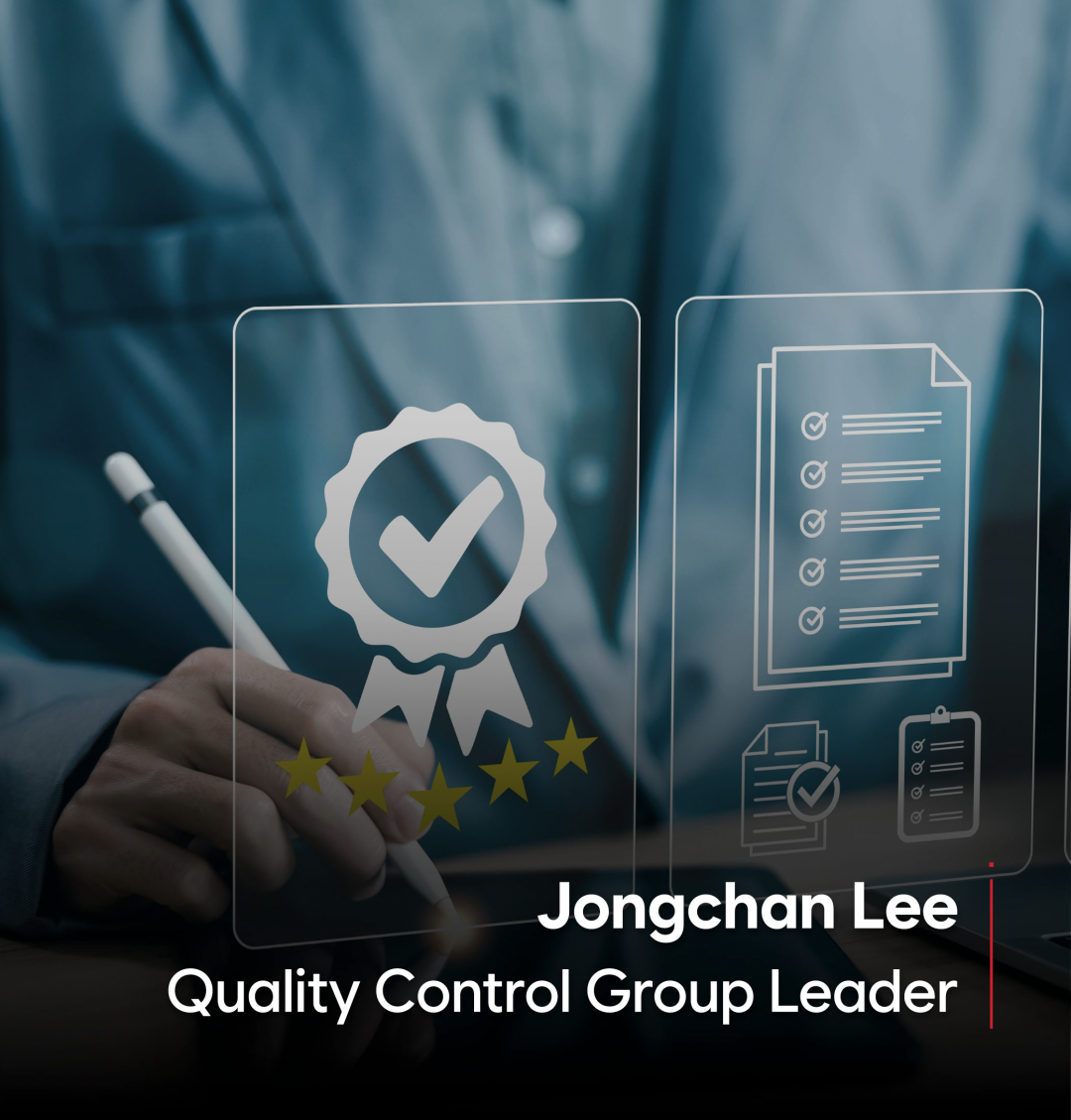[CELLiST Interview] Jongchan Lee, QC Group Leader
페이지 정보
작성자ajinomo 조회 298 작성일 24-10-08 15:33본문
Introduction:
Can you share a bit about your background and how you became the QC Group Leader at Ajinomoto CELLiST Korea?
During my university years, I developed a strong interest in analytical chemistry, biology, and biochemistry. This interest naturally led to my curiosity about pharmaceutical quality control, where I could learn and perform various types of testing. After graduating, I started my career in the QC department of a pharmaceutical company, which marked the beginning of my experience in GMP QC.
Ajinomoto CELLiST Korea was the third GMP manufacturing company I joined, and once again, I entered as part of the QC team. Although it was still a GMP environment, this role introduced me to the new field of cell culture media quality control, something I hadn’t experienced before. With a mindset of becoming an expert in both quality control and the broader scope of cell culture media manufacturing, I continuously studied and worked with passion.
Now, over a decade later, I’m the QC team leader, working alongside my valued colleagues to create an ever-evolving and improving quality control department.
Personal Insight:
What motivated you to pursue a career in Quality Control, and what do you find most rewarding about your role?
Since my university days, I’ve always been interested in subjects like analytical chemistry, microbiology, and biochemistry. I enjoyed learning the theoretical knowledge needed for testing and handling various analytical instruments. When I learned about GMP QC in pharmaceutical companies through my professors and seniors, it naturally sparked my interest, leading me to pursue a career in GMP quality control.
To me, the role of a quality control department is to ensure that consistent, high-quality products are delivered to customers, based on reliable and complete testing and the data generated from it. I find fulfillment in knowing that the data produced by QC plays a crucial role in internal decision-making and helps other departments, ultimately contributing to delivering consistent, high-quality products to our customers.
Role & Responsibilities:
The QC department plays a vital role in ensuring product safety and efficacy. What are some of the key challenges you face, especially in maintaining quality when it comes to microbiological contamination?
I believe the first step is to block the sources of microbial contamination. It's crucial to analyze the risks associated with each process from the perspectives of personnel, equipment, procedures, and the environment, and to take measures to minimize these risks and prevent contamination. Of course, this process should not be a one-time effort but something that is evaluated regularly.
However, unless it’s a sterile process, microorganisms may still emerge. In such cases, it’s important to identify where the microorganisms originated from. This means that any microorganisms present must be under control.
Therefore, we need to have a clear understanding of the potential sources of microorganisms, whether they stem from raw materials, personnel, the environment, or equipment. If a new strain is detected, it’s essential to trace its origin and take appropriate measures to address it.
How do you and your team maintain strict standards in the cleanroom environment, and what measures are taken to prevent contamination during experiments?
Through regular environmental monitoring, we continuously ensure that the manufacturing support facilities are operating properly and that the manufacturing environment remains within acceptable standards. By analyzing environmental monitoring trends, we can quickly detect any abnormalities and work closely with relevant departments to resolve issues and restore normal conditions. This ensures that the cleanroom environment does not negatively impact product quality.
Preventing contamination during testing is also crucial to maintaining the reliability of test results. For this reason, detailed contamination prevention measures are specified in our procedures, tailored to the characteristics of each test and process. We strictly adhere to these guidelines to ensure contamination is avoided during testing.
Collaboration & Leadership:
Quality Control requires strong collaboration across departments. How do you ensure effective communication and teamwork to maintain quality throughout the production process?
In a manufacturing facility, there are many departments, and no single department can start or complete tasks independently. The QC department is no exception—it is closely connected with many other departments. We often can't begin our work until another department has completed its part, and it's important for QC to complete its tasks thoroughly to make it easier for the next department to start theirs. The same applies when issues arise. Multiple departments need to review and investigate the problem from various angles to respond effectively.
This is why, at our facility, department heads communicate closely through daily meetings and regular exchanges of ideas, ensuring that the entire factory operates as a unified team.
Future Advice:
What advice would you give to someone aspiring to work in Quality Control, particularly in the biotech industry?
In quality control, we perform various tasks, but the foundation is testing. Without a deep understanding of each test, it's difficult to move beyond being a simple operator and continue growing in the field of QC testing. This is why it's essential to study diligently during school period and build a solid foundation of knowledge in core subjects, which will be extremely helpful when it comes to understanding, learning, and mastering the work in the field later on.
As for GMP, there's no need to be overly intimidated. While the implementation and operation may differ slightly between companies and departments, the core principles of GMP are clear and straightforward. Once you're in the workplace, there will be plenty of opportunities to deepen your understanding of GMP through training.
So, focus on your studies now, and I encourage you to embrace a pioneering spirit as you challenge yourself in GMP QC.
댓글목록
등록된 댓글이 없습니다.





 SAMPLE
SAMPLE